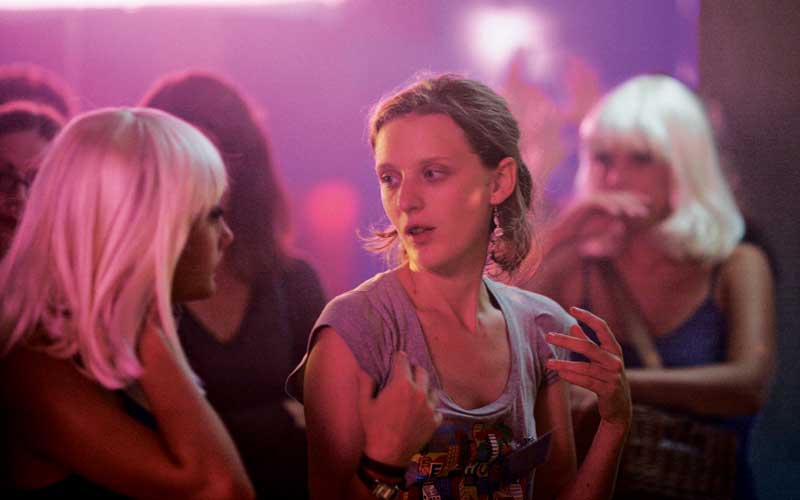Concrete Playground meets Goodbye First Love’s Mia Hansen-Love
Concrete Playground spoke to the very talented young filmmaker ahead of her film’s Australian release.
Usually when we see a teenage romance at the heart of a film we're watching a film made for teens. Goodbye First Love is no such film. The young lovers Camille and Sullivan do not kiss under the speckled light of a disco ball at prom. Mia Hansen-Love's third film weaves neatly into her emerging lineage of intimate, slow-burn portraits of fractured relationships.
Concrete Playground spoke to the very talented young filmmaker ahead of her film's Australian release.
Many adults would say there is no such thing as real love between teenagers. Even if they remember the heartache they felt as a teenager, with time they come to laugh at it. For Camille there's no laughing when she looks back.
One of my motivations for making this film was a fight I had with my mother when I was a teenager. She would not believe the depth of my love for my boyfriend, the hold it would have on me for the rest of my life. In a way this film is a revenge piece! No, no that's not really true. I made this film for myself. It was a cathartic process.
It's interesting you say that because in an interview about your last film (Father of My Children, 2009) when asked about the autobiographical dimension of the film, you said that you made the film to understand why you came to be a filmmaker. Tell me, why did you make Goodbye First Love now?
All the themes I have worked with across my previous films can be linked back to the love I felt as a teenager. And so, to continue making autobiographical films without dealing with this part of my life would have been a lie. Honestly, I could only move on, only grow as a filmmaker, if I told this part of my life. In french we have an expression mensonge par omission I guess that would translate to 'Something that you don't tell is a kind of lie'.
When Camille and Sullivan see a movie together, Sullivan says, "Really, you liked it? I don't understand you. Come on, it was so French! The actors are annoying. It was talky, complacent. It was awful." What is your relationship with French cinema and how do you see your films settling into this category?
I guess I am very French! But that is not something I feel ashamed of. It's so French to not like French films.
I think Australians love to hate their films even more!
Oh, really? Well, that scene was written not so much to criticise French films but to criticise those who criticise [laughs]. French cinephiles can be so narcissistic. Yes, I had fun writing that scene. But, of course, what it's actually meant to express is that two people might not understand each other but they can still love each other.

That sounds very intensive. Directors often refer to their films as their babies. Do you think of your films as your babies?
[laughs] My films were my babies until I actually did have a baby — then you realise these things have nothing in common!
Like children, do you dare compare them against one another?
Oh I really don't like it when people ask me to compare. So, yes, in that way films and children are similar ... I give all that I am to my films. And so the film becomes a part of who I am. At this stage into the process I am in so deep I have no perspective and I don't know if what I'm making is any good. For this reason I have so much empathy for everything I make. I guess that could be confused with defensiveness. But it's not because I am so proud of what I have done but because I know them so well. I spend two years of my life with each film thinking only of them and when the process is over, only then do I realise that the film is something outside of me.
That sounds more like a love affair than a mother-child relationship.
Yes, exactly. And I really do have such a hard time when the process is over. For maybe one week I am very happy, very satisfied, but then the two or three months between the finish of the editing on one film and the beginning of scripting on the next, well, that is a very painful period.
I think George Lucas was paraphrasing Da Vinci when he said, "a film is never finished it is only abandoned."
Ah, yes! I know this quote and it's so true. Truffaut said something like "life for me is making films", and since my first film I would say the same goes for me. If I could not make films, I could not go on.
Making films is like building a house. With each film I feel I am stacking another stone and at the end there is a space where I fell well, I feel safe. Actually, that's one of the reasons Camille becomes an architect — she wants to take control of the spaces and ways in which she lives.
Speaking of the domestic, your films to date seem to be concerned with intimate character portraits set within domestic relationships. Have you deliberately established yourself within this territory or do you plan, at some point, to work beyond these borders?
Hmm. Well, my next film is about the electro music scene and a DJ's place in it. Okay, so it isn't domestic but it's centred around the details rather than the big, dramatic moments.
Read our review of Goodbye First Love here.





